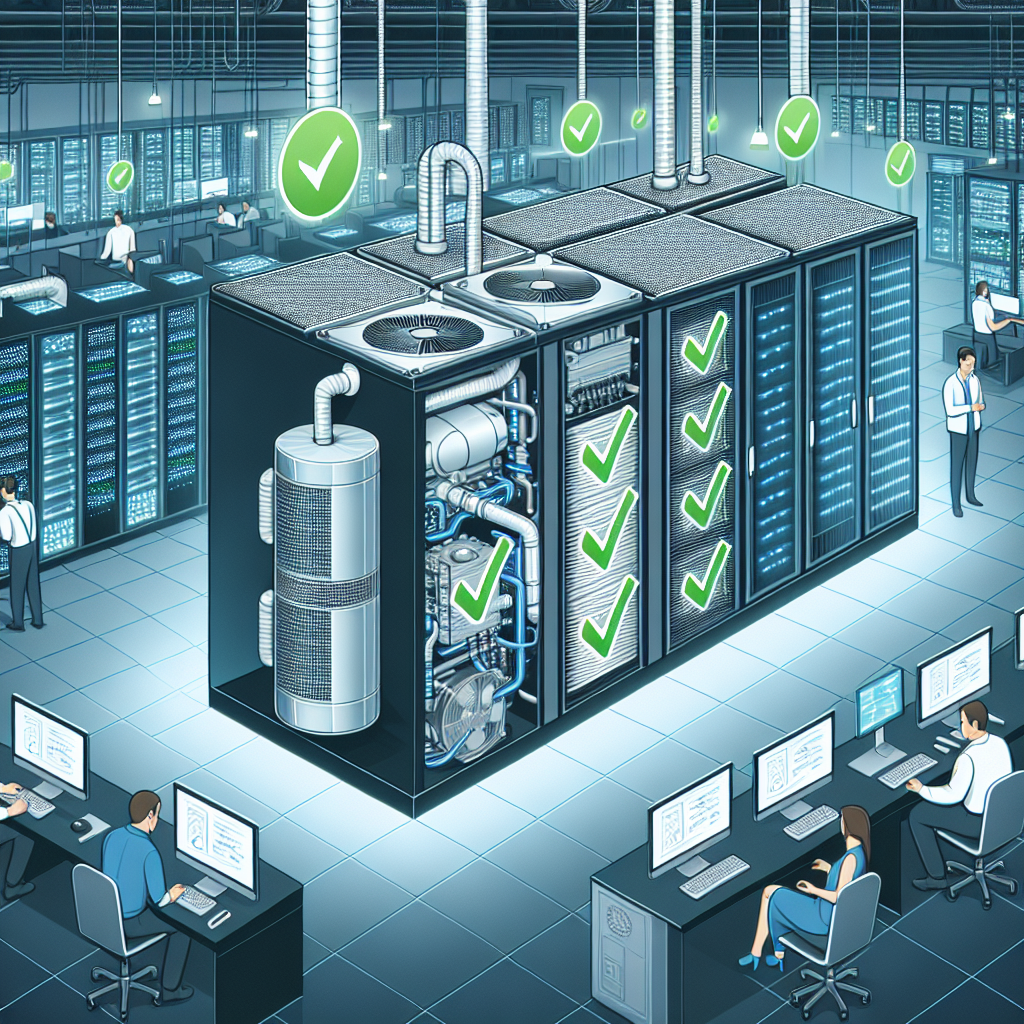Your cart is currently empty!
The Benefits of Upgrading HVAC Systems in Data Centers

Data centers are an essential component of modern businesses, serving as the backbone of information storage and management. These facilities house a vast array of servers, networking equipment, and other critical infrastructure that support the day-to-day operations of organizations. With the increasing demand for data processing and storage, data centers are constantly evolving to meet the growing needs of businesses.
One crucial aspect of data center operations is the HVAC (heating, ventilation, and air conditioning) system. These systems are responsible for maintaining optimal temperature and humidity levels within the facility to ensure the proper functioning of the equipment. As data centers continue to expand and upgrade their infrastructure, it is essential to consider the benefits of upgrading HVAC systems to enhance efficiency, reliability, and overall performance.
Improved Energy Efficiency
One of the primary benefits of upgrading HVAC systems in data centers is improved energy efficiency. Older HVAC systems may be outdated and inefficient, leading to increased energy consumption and higher operating costs. By investing in modern, energy-efficient HVAC systems, data centers can reduce their energy consumption, lower utility bills, and minimize their carbon footprint. Upgraded HVAC systems utilize advanced technology such as variable speed drives, economizers, and energy recovery systems to optimize energy usage and reduce waste.
Enhanced Cooling Capacity
As data centers continue to increase in size and density, the demand for cooling capacity also rises. Upgrading HVAC systems allows data centers to meet the cooling requirements of high-density server racks and equipment without compromising performance. Modern HVAC systems are designed to deliver precise temperature and humidity control, ensuring optimal conditions for equipment operation. By upgrading to systems with higher cooling capacity, data centers can improve reliability, prevent equipment overheating, and extend the lifespan of critical infrastructure.
Improved Air Quality and Indoor Environment
Maintaining good indoor air quality is essential in data centers to protect sensitive equipment and ensure the health and safety of personnel. Upgrading HVAC systems can help improve air filtration, ventilation, and circulation within the facility, reducing the risk of airborne contaminants and ensuring a clean and healthy indoor environment. Advanced HVAC systems can incorporate features such as UV germicidal lamps, high-efficiency air filters, and humidity control to enhance air quality and prevent the spread of pollutants, allergens, and pathogens.
Enhanced System Reliability and Performance
Upgrading HVAC systems can also improve system reliability and performance in data centers. Modern HVAC systems are designed for robustness and resiliency, with built-in redundancy, fault tolerance, and remote monitoring capabilities. By investing in reliable HVAC systems, data centers can minimize the risk of equipment downtime, ensure continuous operations, and enhance overall system performance. Upgraded HVAC systems can also provide better temperature and humidity control, reducing the likelihood of equipment failures and extending the lifespan of critical infrastructure.
In conclusion, upgrading HVAC systems in data centers offers a range of benefits, including improved energy efficiency, enhanced cooling capacity, better air quality, and increased system reliability. By investing in modern, energy-efficient HVAC systems, data centers can optimize their operations, reduce operating costs, and ensure the long-term sustainability of their infrastructure. As data centers continue to evolve and expand, upgrading HVAC systems will play a crucial role in meeting the growing demands of businesses for reliable and efficient data processing and storage.

Leave a Reply